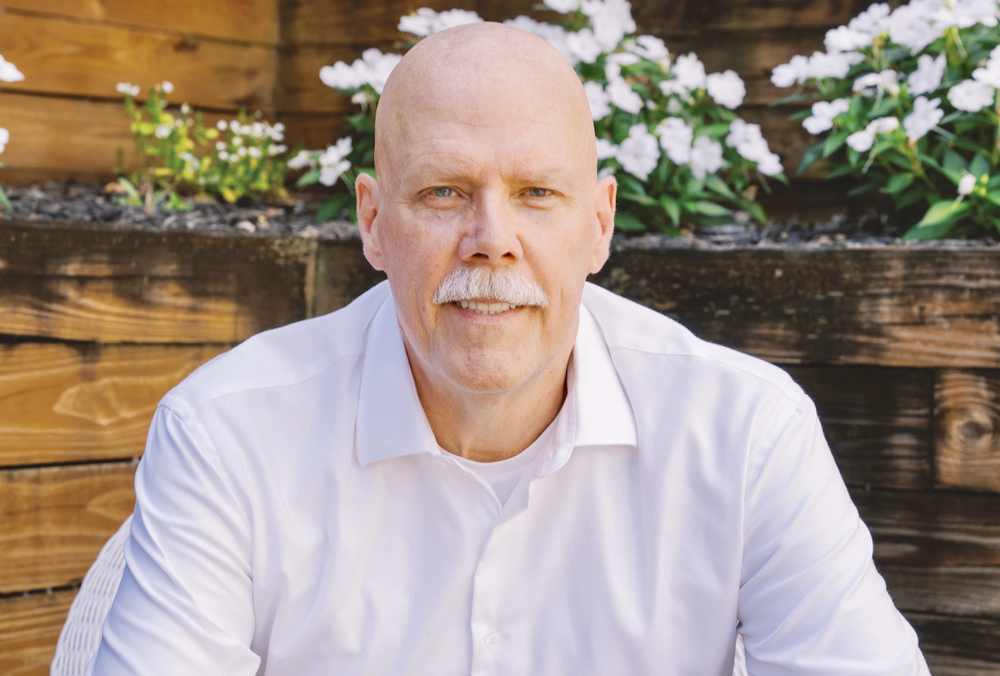Two minutes into the conversation, you begin to see the parallels between Nelson Gibson’s job and the job that more Canadian farmers see ahead for themselves.
On the farm, that job is ahead partly because of how the land market is curtailing farm expansion plans, and partly too because of the new levels of equity farmers can bring to the game.
Together, they’re creating a historic level of drive and the power — on some farms you might use the word “ambition” — to grow through new ventures.
Read Also

Are farmers ready for the digital ag revolution?
How farmers are using technology to remain competitive, find opportunities and meet challenges.
So, while Gibson, the president of Acadian Plant Health (APH), might have preferred talking to Country Guide about the seaweed-based biostimulants that his company is producing and about the trial results (“trial upon trial upon trial,” he tells us) that he says overturn any earlier comparisons to “snake oil,” we keep the talk on how to turn a resource-based commodity into a high-growth business.
Yes, APH harvests the sea, not the soil, but as we talk, it’s the parallels that get more numerous and more striking.
Before taking the head job at APH, Gibson worked in John Deere’s new-business ventures group, then at FMC, and more recently at Chemtura — sometimes called the biggest small ag chemical company in the world. Chemtura had been facing Chapter 11 bankruptcy when he took over the reins and was then sold four years later at a price that topped $1 billion. Gibson smiles: “We grew it like mad.”
Meanwhile, before hiring Gibson, APH had been founded in 1980 by Nova Scotian Louis Deveau to harvest seaweed and turn it into two product groups: Japanese foods, and bio-stimulants reputed to help crops thrive despite abiotic stresses such as drought, salinity and excessively hot or cold weather.
“They had grown remarkably,” Gibson says of APH’s first decades, although the company doesn’t release sales figures. APH met objectives, he assures us, and became the world’s largest seaweed bio-stimulant maker. “They had reached a size most small companies never reach.”
The company had focused its bio-stimulant sales in a big way on organic farmers in droughty California. There, it grew its brand recognition and farmer loyalty while also pioneering overseas sales, especially to China and India.
Then, after almost 40 years, the global market showed it’s ready for explosive growth, thanks to an agriculture focused on sustainability, production efficiency and resisting climate change.
Seizing those markets wouldn’t be simple, though. How can a privately owned Nova Scotia company take on the world?

The Deveau family and Gibson talked. He sensed a good fit from the beginning and told them so. His skills, he said, were primarily market development and business activity, their’s were more harvesting and processing.
“APH saw itself as a seaweed company,” Gibson says. “They faced the ocean. I saw it differently. I saw APH as a crop company, 180 degrees in the other direction … I’m market-facing.”
Gibson saw it as a kind of complementarity. APH excelled at product development, which would continue to be a winner but they needed to get better at knowing what products to innovate for what markets.
The first challenge, Gibson said, was for the company to devise and get behind an achievable go-to-market plan.
The Deveau family had been struggling at the sorts of questions farmers increasingly ask. Yes, you can produce a great product. But how do you score in markets that you don’t know, and that don’t know you?
The big decision
With Gibson on board, the list of questions got a lot more defined. (That, after all, was what he was hired to do.)
And the answer to almost all of them was the same answer: find partners who need you and who have the muscle and the smarts to win on the ground in the markets you need to penetrate.
That in turn led to a new corporate direction. Now, APH would focus on where it wanted to win and on who is already winning with end users in those markets, and it would produce a short list of companies it could win by proving that APH is the right company with the right products at the right time.
It’s a list farmers are familiar with, headed by names like Bayer, Syngenta, BASF and FMC.
All are under pressure from farmers, shareholders and governments to get more committed to products with a positive sustainability story, like bio-stimulants.
That pressure is “transformative,” Gibson says. “They’re recognizing and embracing that need.”
It’s a statement he makes with considerable insight, having built global networks in his days at Chemtura, and now he argued APH has the right production skills and knowledge to line up with their needs,
“Five years ago, APH had no relationships with multinational corporations at all,” he says. Instead, the company’s focus was B to C (i.e. business to customer), focusing on niche markets like the organic space.
But, says Gibson, if the whole point is to get your product into the farmer’s hands, partnering with a large company that is already selling to huge numbers of those farmers is a potential winner.
”We’re not a distributor,” he says.
But it goes beyond that too. The job for multinationals isn’t just to stock some sustainable products in their warehouses, it’s also to help their farm customers continue to be profitable as they go increasingly sustainable — whoever gets to define what sustainable means.
Again, this aligns with the emerging APH business plan, especially now that they have upped their investment in creating and developing new products and formulations.
More key questions lay ahead. Should APH build on their own product brands, should they develop products that their customers (i.e. the multinationals) can label as their own brands, or should they make active ingredients that the multinationals can add to their own pest control products so they contain bio-stimulant as well.
Also, should APH partner with companies that they sell to through their own sales network, or though the stores of select retailers, or through almost any location that will give them shelf space?
APH’s enhanced focus on multinationals largely takes those questions off the table. Instead, APH’s job is to give the multinationals the options they need to meet bio-stimulant targets within their own systems.
It works, Gibson says, because agriculture is shifting and because the multinationals have real needs to deliver more sustainable products. “It will be all of the above. It fact, it is right now.”
“We have an offering that does the trick for everyone along the chain,” Gibson says. “It’s a rapidly growing space that we’re in … growth rates 10 to 20 per cent per year for the foreseeable future.”
For farmers, the relevant lessons continue. Not only did Gibson want APH to understand the mission, he also wanted it to excel at the brand values that would give extra encouragement to the multinationals to sign on.
So, for instance, he needed a team with deep experience in working with multinationals, so they would understand the ways multinationals think and talk.
He also built a team that believes in collaborative leadership. That had been a core objective at Chemtura where, in four years, he cut the number of staff working out of the company’s headquarters from 35 to five since more decisions would be made with input from the people on the ground in the affected markets instead of in the head office.
“They all pretty much followed me here,” Gibson says.
And there’s another string to their bow as well. Today’s APH focuses on acting like a multinational. “Our business processes, the way we go to market, the way we fulfil our orders … the way we plan, invoice, every last bit of the business has been transformed so it will look familiar to those B to B partners,” Gibson says. “We are confident that we are the most similar to them(the multinationals) in terms of our look and feel and in terms of how we operate compared to any other organization in the bio-stimulant space.”
Again, that is a company-wide decision. “We built the company to house ag chem and bio-stimulant expertise all under one roof. It looks and feels like something that’s much larger than it is.”
And, says Gibson, “It has the ability to flex up significantly from what it is.”
It’s the right model for APH, he says. The strategic partner approach opens new markets and new sales opportunities. The focus on research and on customer service builds the APH lead in the sector and enhances its credibility. And with its new tagline “Sea Beyond” already in place, Gibson says “we have very few building blocks remaining.”
In Canada, he simply says, “We will grow by several multiples.”
“What we will be three, four, five years will be unrecognizable,” he says.
And he only pauses one heartbeat before adding, “The market-facing bit is always the hardest.”
















